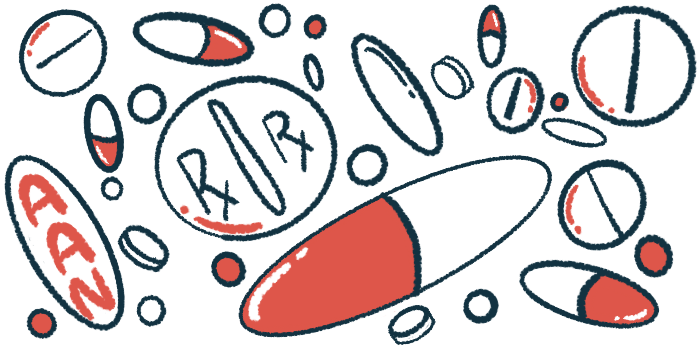AAN 2023: DNL343 is safe, appears to work as intended in Phase 1 trial
Data support the investigational oral therapy's once-daily dosage
Written by |

Treatment with the investigational therapy DNL343 was generally well-tolerated among people with amyotrophic lateral sclerosis (ALS) in an early clinical trial, and biomarker data from the trial suggest that the therapy is working as intended.
Results were presented at the annual meeting of the American Academy of Neurology (AAN), in the poster “The Integrated Stress Response Is Modulated by eIF2B Agonist DNL343: Results From Phase 1 Healthy Subject and Phase 1b ALS Patient Studies.” The work was funded by DNL343’s developer Denali Therapeutics.
How does DNL343 work?
DNL343 is an oral therapy designed to lower the activity of a molecular pathway called the integrated stress response, or ISR. This pathway is usually turned on when cells are under stress, and then it turns off again once the stressful event has ended. In ALS, it’s thought that continual activation of the ISR in nerve cells may contribute to disease progression.
DNL343 specifically works by activating a protein called eIF2B, which acts to “put the brakes” on the ISR pathway. In animal models, the therapy has been shown to be able to get into the brain and block ISR activation.
Denali sponsored a Phase 1 clinical trial (NCT04268784) that tested DNL343 in 95 healthy volunteers. The experimental medicine was well-tolerated, with no serious side effects and no participants quitting the trial due to issues with the medication.
The findings supported the launch of a Phase 1b study (NCT05006352) to test DNL343 in people with ALS, with the primary aim of assessing the safety and tolerability of the therapy. A total of 28 patients were randomly assigned to take a low or high dose of DNL343 or a placebo, either orally or via a feeding tube, daily for about a month.
Study results showed that DNL343 was generally well-tolerated: the most common side effects included headache, fatigue, and a reduced ability to taste (hypogeusia). None of the side effects were rated as serious. One patient given the higher dose of therapy chose to leave the trial due to developing a rash as a side effect.
Pharmacological data from both of these trials were consistent in terms of how the therapy moves through the body, and supported its once-daily dosage.
Data support further development of DNL343 for ALS
Analyses of blood cells from both ALS patients and healthy volunteers showed that treatment with DNL343 led to reductions in markers of ISR activity, namely ATF4 protein levels and CHAC1 gene expression.
“DNL343 is generally safe and well-tolerated at doses that demonstrate robust inhibition of ISR,” the researchers concluded, adding that these data “support further development of DNL343 as a potential therapeutic for the treatment of ALS.”
ALS patients who completed the Phase 1b study had the option to enter an open-label extension phase, where all are receiving DNL343 and being monitored for long-term outcomes. At the time of data cut-off in December, patients had been receiving DNL343 in the extension part for a median of four months, with some reaching up to one year of exposure.
DNL343 was recently added to the HEALEY ALS Platform Trial (NCT04297683), a study led by the Sean M. Healey & AMG Center for ALS at Massachusetts General Hospital that aims to simultaneously evaluate several potential treatments for ALS. Enrollment in the DNL343 arm of the HEALEY trial is expected to start by mid-2023, Denali said in a press release.







